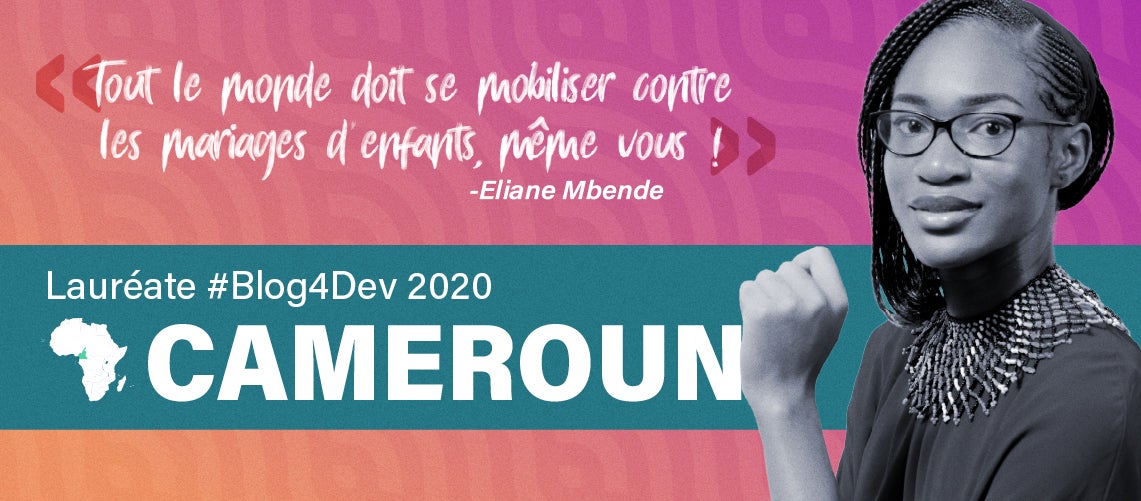 Eliane Mbende, lauréate du concours Blog4Dev au Cameroun.
Eliane Mbende, lauréate du concours Blog4Dev au Cameroun.
Have you ever wondered why parents marry off their under-18 year old children against their will? From what I have read on this subject, four factors are behind this phenomenon: the importance of patriarchy, poverty, traditional justice, and alliances.
I became aware of the extent of these early marriages in my community after witnessing a forced marriage between a smart 14-year old orphan girl and a wealthy businessman, aimed at securing a more decent standard of living. Four in ten girls in Africa today are married before the age of 18.
Apart from being a violation of children’s rights, this practice is also a violation of women’s rights, because girls are often the victims.
Ending this gender-based form of violence requires collective awareness and the involvement of all actors in society, including you.
A multisectoral approach could be adopted to end child marriage in Africa:
- Communicate to promote development: In particular, strengthen social mobilization to change behaviors and make greater use of sexual and reproductive health services. This will require building the capacity of health service providers and key community actors such as religious and traditional leaders, political leaders, and the media in the areas of gender-based violence and the rights of children/women. This knowledge will facilitate their effective participation in community discussions aimed at dissuading parents from marrying off their girls too soon.
- Educate and empower girls through support networks: Primary and secondary schools could encourage girls to stay in school by forming groups to combat gender discrimination in schools. These teams would be responsible for raising awareness among students about gender and reproductive health issues, and identifying and notifying the administration about the difficulties that some girls face in their community and at school, as well as the risk of school dropout due to marriage.
These vulnerable girls would benefit from services offered in communities by a multifunctional center for victims of early marriage, which would provide them with shelter and training to acquire skills and learn a trade (for example, sewing, dyeing, or liquid soap making) to support themselves and pave the way for their socio-economic reintegration once they leave. - Strengthen social protection mechanisms for children: Lastly, the establishment of protection committees and counseling and support centers for victims of forced marriage would help sustain a protective environment and ensure medical care covering clinical management of childbirth among adolescent girls who face a higher risk of complications and certain rape cases, as well as psychosocial care provided by support groups led by former victims who managed to find a way out.


Join the Conversation